Guardian interviews with former detainees reveal up to 400 Egyptians being held without judicial oversight amid wider crackdown on human rights
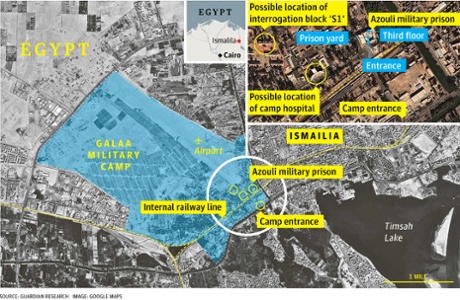 Map showing the Galaa military camp in Ismalila and the location of the Azoulu military prison within it. The S1 block, which detainees describe as an interrogation block, is a few minutes drive from the jail
Map showing the Galaa military camp in Ismalila and the location of the Azoulu military prison within it. The S1 block, which detainees describe as an interrogation block, is a few minutes drive from the jail
Hundreds of “disappeared” Egyptians are being tortured and held outside of judicial oversight in a secret military prison, according to Guardian interviews with former inmates, lawyers, rights activists and families of missing persons.
Since at least the end of July 2013, detainees have been taken there blindfolded and forcibly disappeared. Up to 400 are still being tortured and held outside of judicial oversight in the clearest example of a wide-scale crackdown that Amnesty and Human Rights Watch have jointly called “repression on a scale unprecedented in Egypt’s modern history”.
Prisoners at Azouli are routinely electrocuted, beaten and hanged naked by their tied wrists for hours until they either give up specific information, memorise confessions or until – in the case of a small group of released former inmates – are deemed of no further use to their interrogators.
They are among at least 16,000 political prisoners arrested since last summer’s regime change. But what sets Azouli’s prisoners apart is the way they are held outside of Egypt’s legal system, in circumstances that allow their jailers to act without fear of even hypothetical consequences.
“Officially, you aren’t there,” said Ayman, a middle-aged man who was brought to Azouli towards the end of 2013, and one of only a few to later be released.
“It isn’t like normal prisons. There is no documentation that says you are there. If you die at Azouli, no one would know.”
Azouli prison cannot be seen by civilians. It lies inside a vast military camp – the sprawling headquarters of Egypt’s second field army at Ismailia, a city 62 miles north-east of Cairo – but hundreds are nevertheless all too aware of its third and highest floor, where the detainees are held in cramped cells.
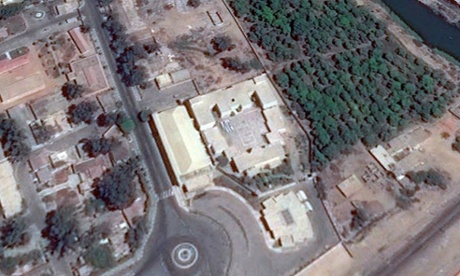 Azouli jail in the military base in Egypt.
Azouli jail in the military base in Egypt.
According to three former inmates, each interviewed separately, the majority of Azouli detainees are Salafis – ultraconservative Muslims – suspected of involvement or knowledge of a wave of militant attacks that began after the violent dispersal of a pro-Mohamed Morsi protest camp in August 2013. Many are from the northern Sinai peninsular, the centre of a jihadist insurgency, but there are prisoners from all over Egypt.
A few are suspected members of the banned Muslim Brotherhood, others were involved in student protests and a significant minority are people with no connection to religious movements who interviewees felt had been arrested at random. All three said at least one prisoner was a child and two said another was a journalist.
The interviewees characterised their detentions as metaphorical fishing expeditions in which they were arrested on little evidence and then tortured to force them to give up any information that would justify their incarceration.
“The issue is that many of those at Azouli are arrested randomly or with very little evidence, and then the intelligence services use torture to find out whether they are actually involved in violence,” said Mohamed Elmessiry, Egypt researcher for Amnesty International, who has led an extensive investigation into Azouli.
For Khaled, a young activist, the torture began before he arrived. Arrested as he went about his daily business several months ago, he alleges that he was beaten and electrocuted by soldiers and military policemen in an enclosed outdoor space for several hours before being driven to Azouli.
“They used up two electric-shock machines,” said Khaled. “They brought a towel and put water on it and put it on my face to stop me breathing. The military policemen kept beating me.
“After four hours my clothes were ripped apart. My face was swollen. My eyes were closed. I got a wound in my jaw deep enough for a soldier to put his finger inside it.”
In the military vehicle on the way to Azouli, Khaled says he was trapped underneath a car seat with his arms locked behind him – a position of prolonged and excruciating pain he says was worse than any he would experience in the coming months.
At Azouli, he says he was immediately placed in a cell on the third floor, where the vast majority of the disappeared prisoners are held.
Two other survivors said they were beaten on arrival by a “welcoming committee” of soldiers, an experience that prisoners in civilian prisons also frequently report.
“When we arrived at the prison, they covered our eyes,” said Ayman, the middle-aged former prisoner. “They took everyone’s valuables and their belts and anything that resembled a rope. Medicines, too. And after that they started the beating. They lined us up against the wall and hit us with sticks, water pipes and fists. This lasted for 10 minutes.
“Then they lined us up and as we walked to the third floor, they beat us as we walked. In the corridor on the third floor, they uncovered our eyes again and started beating us. The warden on the third floor – he was called Gad – kept threatening us: ‘If anyone looks out of the window, if anyone makes any noise, we will beat you.’ And then they beat us for a while, with their fists to our faces. After the beating, they put us in the cell.”
The bottom two floors of the prison have long been used to detain soldiers subject to courts martial. But since July 2013, political detainees have been kept on the third floor, the majority of them in about a dozen cells that each contain between 23 and 28 prisoners.

At any one time, the third floor can hold well above 300 prisoners, with the total number of inmates likely to be higher, since some detainees have left and others have taken their places.
Amnesty believes that up to 20 have been released from any kind of custody. Lawyers also say that a number of others have “reappeared” in civilian jails, accused of terrorism charges based on confessions extracted after torture and interrogation.
The interrogation and systematic torture of Azouli’s prisoners takes place in a separate building – known as S-1 – a few minutes’ drive from the prison. About 10 prisoners are taken there at the middle of each day. Once their names are called, they are let out of their cells to blindfold themselves and form a line. Each survivor said that at this point they would be beaten then led downstairs to a minibus, where they would be beaten again. Prisoners are then driven the short journey to S-1, where they are usually led up a set of wooden stairs to a first-floor office. There the detainees wait – still blindfolded – until they are called one by one to a next-door room.
When Khaled was first called, on his first full day at Azouli, he remembers the unnerving sound of an officer silently flicking his lighter on and off for several minutes before asking a series of questions about the organisation of protests.
“And then the torture started,” Khaled recalled. “It started with electric shocks in every place in my body. [The officer] called the military policemen and told them: ‘Take off his clothes.’ They took me out of the room. I took everything off apart from my boxers. They said: ‘Make yourself totally naked.’ I said no. The officer said: ‘Bring him in.’
“I started to give him some names. He felt I had lied, so he ordered the soldiers to make me totally naked. The electric shocks were in every place in my body, especially the most sensitive areas – my lips, the places with nerves. Behind the ear and lips. Under the shoulders.”
After the electrocutions, Khaled’s hands were tied behind him. He then claims he was hanged naked by the ensuing knot from a window frame – a torture technique known as the Balango method, which left his shoulders and wrists in excruciating pain. Two-and-a-half hours later he was taken down and returned to the cells.
Two other former inmates report similar experiences, though one says he was tied in a different position, and the other – Salah, a man in his 20s – said he was allowed to keep wearing his clothes while being electrocuted.
“The officer asked me if I knew certain people from a list,” said Salah. “If I said no, he would electrocute me … My answers were, of course, no: I don’t stay very much in [my hometown]. So he would electrocute me.
“The electrocution was over my clothes, but on the testicles. I was sitting on the floor, handcuffed. He was sitting on the small table, and would stretch his hands to electrocute me in my testicles.”
The victims cannot know for certain who tortured them. But all three believe that the interrogations were led by officers from military intelligence – the army wing headed until 2012 by Abdel Fatah al-Sisi, Egypt’s new president – with involvement from the secret police, known informally in Egypt as amn ad-dawla, or state security.
One interviewee said he had been brought to Azouli by state security, who handed him over to the army.
According to Ahmed Helmy, a lawyer who represents former Azouli prisoners, many detainees are tortured by military intelligence until they memorise specific confessions to acts of terrorism. Then they are transferred to state security offices where they are asked to repeat these confessions to a police prosecutor. Other detainees from civilian jails confirm meeting Azouli prisoners at this stage in their incarceration.
If they repeat their memorised confessions correctly, Azouli prisoners are then “reappeared” in a civilian jail, where torture is less systematic, and where they are allowed visits from lawyers and relatives. But, says Helmy: “If they don’t confess exactly how the security services want, they’re sent back to Azouli for more torture.”
Helmy represents some of the detainees who he says have been transferred from Azouli to civilian jails. He says some of them may have committed parts of the crimes to which they have confessed, but because of the way their confessions were extracted it was impossible to be sure.
“You can’t know if these people have committed these crimes or not,” Helmy said. “Under the pressure of torture you can admit to anything. It’s clear that some people are admitting to things because of the torture.”
The mother of one former Azouli detainee – now transferred to a civilian jail – said it had taken her son Omar four days of torture and three trips to a civil prosecutor before he would agree to recite his forced confession. Omar’s mother said she feared he had died because during his time at Azouli no state institution would reveal his whereabouts.
She only found Omar again when he re-emerged at an official jail weeks later. “The skin on his nose was raw to the bone,” she remembered of their reunion at a family visit inside the second prison.
“There was a cut with the depth of a fingertip on his neck, which came from being beaten with a metal stick. There were two big wounds on his wrists from the hanging.
“They electrocuted him on his testicles. He said he was threatened with rape and that they used to hang them naked. He said he was prevented from going to the bathroom for six days and they kept him blindfolded for ten days.
“He asked me if we had had any visits, because they threatened that they would arrest his [female relatives], rape them, film it, and then show them the videos.”
The three former prisoners interviewed directly by the Guardian said that they were not tortured at S-1 as many times as detainees such as Omar. Over time, officials appeared to lose interest in them, which may partly explain their eventual release.
Summarising the difference between Azouli and notorious civilian jails such as Cairo’s Scorpion prison, Helmy said: “Scorpion is an official prison under the supervision of the prosecution and it’s visible. But Azouli is in a military area. It’s forbidden for any civilians to go inside.
“When we ask the civil prosecution to investigate people inside Azouli, they say they don’t have any jurisdiction to go there. So it’s a place where military intelligence can take their time and torture people without any oversight.”
At Azouli, prisoners subjected to systematic torture lack even a hypothetical legal redress.
“It gives you an idea of how confident the security forces are today,” said Amnesty’s Mohamed Elmessiry.
“They don’t care about the rule of law. They are holding people for over 90 days and subjecting them to ongoing torture without any judicial oversight. These practices are a devastating blow to detainees’ rights, as enshrined under both Egyptian and international law.”
As Khaled, one of the three survivors, summarised: “Your whole life there is a living tomb. No one knows anything about where you are.”
A senior military officer acknowledged the existence of Azouli prison, but did not respond within a fortnight to specific written allegations, and turned down a request to visit the jail.
• Additional reporting by Manu Abdo. All detainees’ names have been changed.
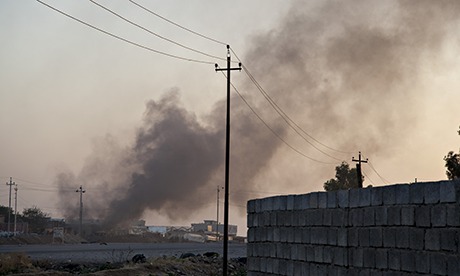

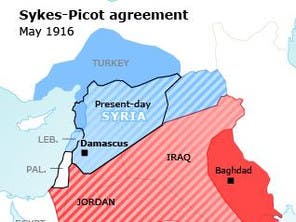
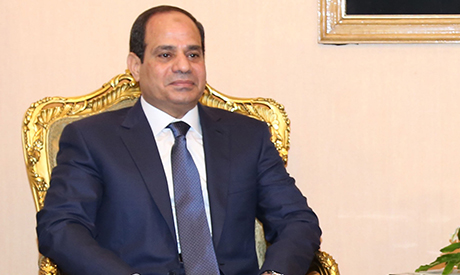
 Map showing the Galaa military camp in Ismalila and the location of the Azoulu military prison within it. The S1 block, which detainees describe as an interrogation block, is a few minutes drive from the jail
Map showing the Galaa military camp in Ismalila and the location of the Azoulu military prison within it. The S1 block, which detainees describe as an interrogation block, is a few minutes drive from the jail Azouli jail in the military base in Egypt.
Azouli jail in the military base in Egypt. 

 Photo: Napoleon marked the start of the colonial and neo-colonial meddling that had followed him. (National Gallery of Victoria: Napoleon Revolution to Empire)
Photo: Napoleon marked the start of the colonial and neo-colonial meddling that had followed him. (National Gallery of Victoria: Napoleon Revolution to Empire) 


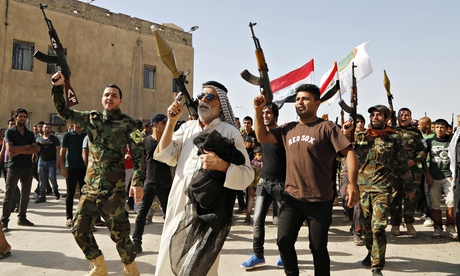


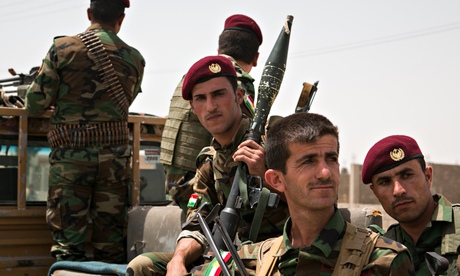




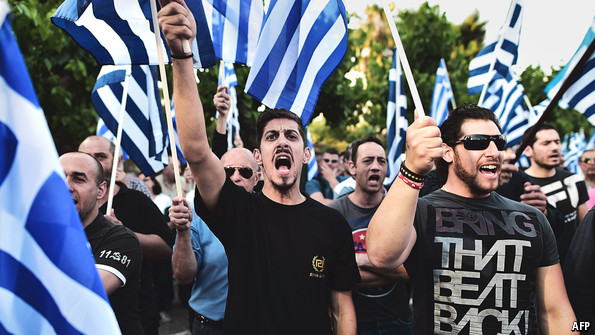 Golden Dawn on the march to Strasbourg
Golden Dawn on the march to Strasbourg